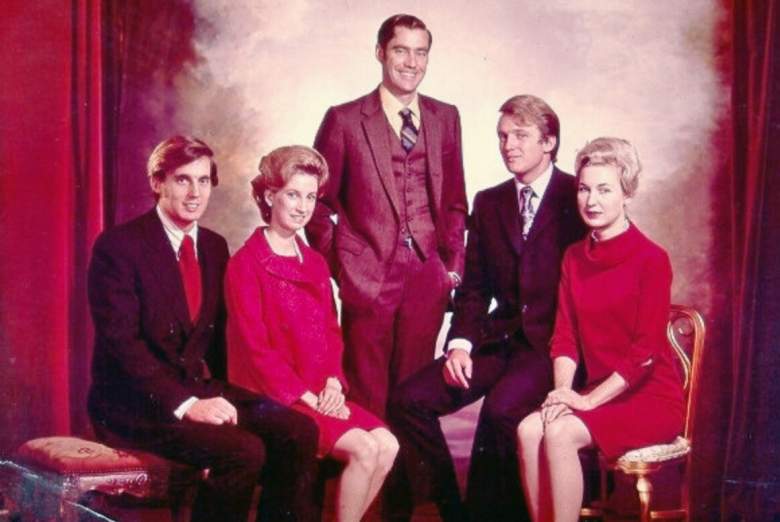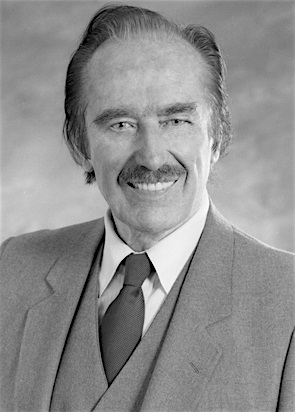Democratic nominee Hillary Clinton is pushing the story of Mae Wiggins in the final days of the 2016 presidential campaign.
Wiggins is an African-American woman who contends that she was a victim of housing discrimination in a Trump building in 1963.
“When a black tenant applied for an apartment in one of Trump’s buildings, she was told it wasn’t available,” Clinton tweeted on October 25.
However, Trump was only 17 when the application by Wiggins and a friend, Maxine Brown, was denied; Trump’s father, Fred, features more prominently in the actual story. Years later, when Trump was 27 and president of the company, the Justice Department filed Fair Housing violation allegations that eventually resulted in settlement but no admission of guilt.
Here’s what you need to know:
1. Wiggins Says She Was Denied Housing Because of the Color of Her Skin
The Clinton campaign video starts out, “My name is Mae Wiggins, and I was denied an apartment in the Trump buildings based on the color of my skin.”
Clinton’s vice presidential running mate Tim Kaine says in the video that Trump and his family were involved in low and moderate income rental housing in Brooklyn, Queens and other cities.
Wiggins claims she applied and was told by the Trump Corporation that there were no vacancies. “I felt very, very angry – so much so that it still evokes, it still evokes anger and hurt deep, deep hurt,” Wiggins says in the video, wiping away tears.
She adds of the possibility of a Trump victory: “I fear for certain minority groups.”
According to The New York Times, Wiggins says “that in 1963, she and a friend were both turned away from a Queens borough apartment complex owned by the Trumps.” The newspaper quoted her as saying: “We were both professional people with good credit ratings.”
2. A Rental Agent Says Trump’s Father Told Him to Put the Application in a Drawer

Trump family photo, with Freddy on left, Donald on right. (Trump Campaign Photo)
Wiggins’ friend, Maxine Brown, who was also black, was initially denied an apartment also.
Stanley Leibowitz, the rental agent, told The New York Times that he talked to Trump’s father, Fred.
“I asked him what to do and he says, ‘Take the application and put it in a drawer,’” Leibowitz told The Times.
Wiggins is a retired nurse, says the Clinton video.
3. Donald Trump Was Only a Teenager When the Application Was Denied

Donald Trump with his father, Fred. (Facebook/Donald Trump)
Although the Clinton video attempts to attach the experience of Wiggins to Donald Trump as well as Fred Trump, according to The New York Times, Donald Trump was still a juvenile when the Wiggins’ and Brown applications were denied.
The Times says he was 17. Trump was born June 14, 1946. The application was denied in late 1963. The Times claimed a teenage Donald Trump spent “much of his free time touring construction sites in his father’s Cadillac, driven by a black chauffeur.”
4. Wiggins’ Friend Filed a Complaint With the New York City Commission on Human Rights

Fred Trump, the father of Republican presidential candidate Donald Trump, in an undated photo. (Wikipedia Commons)
According to New Century Times, after Wiggins’ friend Maxine Brown filed a complaint with the New York City Commission, “all of a sudden Brown was offered an apartment in the complex.”
The New Century Times contended that “state investigators in 1967 found that of the 3,700 apartments in Trump Village, only 7 were occupied by black families.”
Agnes Bunn, who was also black, told the Commission that it was “known that no ‘colored’ people were wanted as tenants in Trump properties,” says the news site.
5. The Trumps Eventually Signed a Consent Decree After Being Accused of Violating Fair Housing Laws

Donald Trump. (Getty)
The consent decree came after other allegations and a counter suit, said the Dallas Morning News, and eventually ended in a consent decree that did not require the Trumps to admit any guilt. At the time, Trump called the claims “outrageous lies,” said The Washington Post.
The counter suit was filed for Trump by Roy Cohn, a former Joe McCarthy aide, who alleged Trump employees were harassed by the Justice Department, said The Daily Beast. The judge dismissed Cohn’s allegations against the FBI, said Daily Beast.
According to Politifact, in 1973, Trump, now an adult, was a “hands-on president” of the realty company his father owned. That year, says Politifact, the U.S. government “filed a complaint against Trump, his father Fred Trump, and Trump Management. The complaint alleged that the Trumps violated the Fair Housing Act, part of the Civil Rights Act of 1968, by discriminating against tenants and potential tenants based on their race.”
The Washington Post says that the Justice Department sent testers in 1972 – a black person and then a white person – to try to rent an apartment. The black person was told nothing was available, but the white person was told an apartment was available, the Post said.
In one case, alleged the government, a black man was told no apartments were available at one of the Trump buildings in 1972 but when his white wife returned, she was offered an application, said Politifact, which added that, “the company’s comptroller instructed a rental agent to attach a sheet of paper that said ‘C’ for ‘colored’ to every application submitted by a person of color.”
The government’s case was eventually closed. Trump told Politifact the allegations occurred when he was “very young” and said, “We settled the suit with zero — with no admission of guilt. It was very easy to do.” In his book, Art of the Deal, Trump called it a “minor settlement” without admission of guilt. The Daily Beast says the Trumps agreed to a series of actions as part of the settlement, including letting the Urban League “present one qualified candidate for every five vacancies in buildings where less than 10 percent of residents were black.”